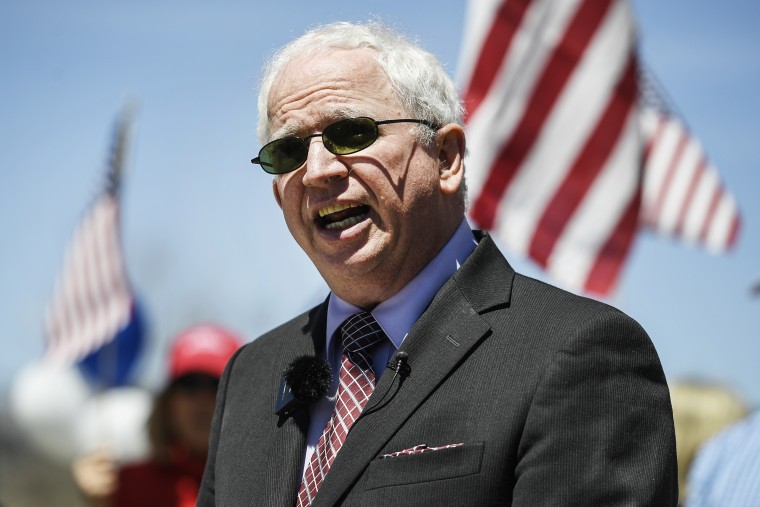John Eastman, the lawyer who wrote memos arguing then-Vice President Mike Pence could overturn the 2020 election, is seeking to stop the Jan. 6 committee from obtaining two handwritten notes from former President Donald Trump.
In a court filing, attorneys for Eastman said the notes contain information that Trump "thought might be useful for the anticipated litigation," and should not be turned over to the House panel investigating the Jan. 6 riot.
They characterized the notes as "quintessential privileged material," arguing that such communications are protected by attorney-client privilege.
Eastman also asserted attorney-client privilege over another 111 documents containing communications with agents of Trump or with other attorneys working on Trump’s legal team, including six people described in the filing as "conduits" to the former president.
Of those six "conduits," three were attorneys who worked for Trump's campaign committee and the other three were members of his immediate staff, one of whom is also an attorney, the lawyers wrote.
“While Dr. Eastman could (and did) communicate directly with former President Trump at times, many of his communications with the President were necessarily through these agents,” they added.
Eastman's legal team also claimed attorney-client privilege for 50 documents of communications with nine clients or potential clients who sought his legal advice "regarding the constitutional authority of state legislatures to deal with election illegality and fraud."
Their filing, first reported by Politico, says seven of those people were state legislators — "one was a party committeewomen [sic] and also agent of one of the legislators; and the last was a citizen coordinating information sessions for state legislators."
In January, Eastman sued the committee in federal court in California, arguing that its members had improperly subpoenaed his emails from his former workplace, Chapman University.
U.S. District Court Judge David Carter, who presided over the case, has been skeptical of many of Eastman's privilege claims, and has already ordered him to turn over more than 10,000 pages of documents to the committee.
In March, Carter ordered Eastman to turn over a draft memo to the committee under the so-called crime/fraud exception, finding it was "more likely than not" that Trump and Eastman "dishonestly conspired to obstruct the Joint Session of Congress on January 6, 2021."
“The memo recommended that Vice President Pence reject electors from contested states on January 6," Carter wrote, and “pushed a strategy that knowingly violated the Electoral Count Act.”
Trump and Eastman "justified the plan with allegations of election fraud— but President Trump likely knew the justification was baseless, and therefore that the entire plan was unlawful," the judge said.
Eastman's lawyers stood by the debunked election fraud claims in the latest filing, writing that his efforts on behalf of his client "were all based on the well-grounded premise that illegality and fraud had occurred, and that further investigation was essential to determine the true winner of the 2020 election."

